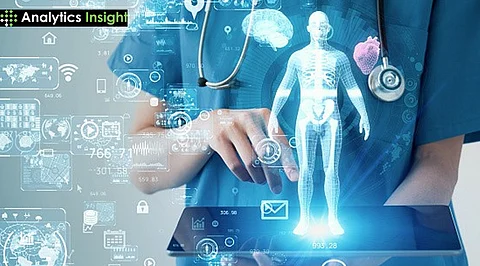

Artificial intelligence (AI) is revolutionizing several fields, including healthcare. It has transformed diagnosis, testing, and treatment approaches, making them easier, faster, and more accurate, leading to enhanced patient outcomes. (1) This article presents the impact of AI on the healthcare sector, including its applications, advantages, and challenges.
While traditional diagnostic tools are effective, AI algorithms have improved diagnostic accuracy by analyzing enormous amounts of data and predicting results with high precision. Therefore, AI can prevent preventable medical conditions. It reduces human error and manages a large volume of medical records. This can be applied in the following:
AI-powered imaging systems (e.g., X-rays and MRIs).
Early detection of diseases, such as strokes and cancers.
Prediction of ICU transfers.
Prediction of Hospital-Acquired Infections.
Medical Testing.
AI can assess and evaluate the patient's full medical information, including medical history, family history, genetic factors, current health, and lifestyle. Based on this comprehensive access, AI can proactively recommend specific treatment plans and identify the most effective medications for each patient with minimal potential adverse events. This approach optimizes treatment regimens, improves quality of life, and reduces healthcare costs.
Large healthcare facilities like hospitals have massive, complicated medical records, and scheduling and billing systems, which are time- and effort-consuming and are prone to human errors. AI automated technologies have reduced these burdens on the healthcare sectors by the following:
Automated scheduling systems for appointments and reminders.
Digital communications with patients.
Automated billing systems and insurance claims.
Healthcare providers can have more time and focus on patient care.
The traditional method of drug discovery requires significant effort, time, and cost. However, with AI and machine learning technologies, this process can be stimulated and enhanced. AI can gather clinical trial databases and analyze them. This approach can reduce the number of ineffective drugs by predicting drug interactions and behaviors, and identifying the most suitable drug candidates, therefore, it can promote the discovery of new, effective, and safe medications in an innovative, fast, and accurate manner, with much lower costs.
Although artificial intelligence and machine learning have significantly positive impacts on healthcare, there are some challenges and concerns, such as the following:
Data privacy and security are major concerns, as AI systems allow full access to sensitive and private patient information. This can make patient data prone to breach and unapproved access.
Unintentional bias can occur if the input data used for training AI systems aren’t representative. This can result in misdiagnosis and unequal treatment between different people, worsening healthcare outcomes.
If AI algorithms make errors in diagnosis, recommendations, or treatment, it is difficult to determine accountability for these mistakes.
It is challenging for healthcare providers and patients to fully trust AI-generated health decisions, leading to resistance to adopting these modern technologies.
Full dependence on AI technology, on the other hand, can diminish critical thinking, judgment, and patient-physician interactions. Additionally, it can affect the empathy and compassion that are essential in patient care.
Applying AI-driven technologies is costly and requires implementing hardware, software, and staff training.
Automation of certain tasks can replace the need for human work, resulting in reduced job opportunities.
Written by Webteb.com
